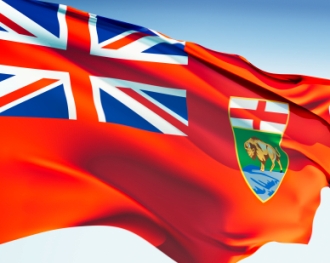
Manitoba Plans Ahead
The Provincial Government and the Council on Post-Secondary Education (COPSE) recently sponsored an accessibility forum on post-secondary education (see: http://www.gov.mb.ca/chc/press/top/2002/11/2002-11-08-04.html). This forum’s purpose was to bring together educators, students, administrators, and other stakeholders to share ideas and discuss how post-secondary education could be made more accessible to all Manitobans.
The provincial Advanced Education and Training Minister explained, “Access to higher education is key to building a skilled, well-educated workforce and a stronger Manitoba economy. As the information age takes hold, education becomes increasingly important to our ability to compete in the rapidly growing knowledge-based economy.”
Congratulations on there finally being someone that understands. Attracting and fostering research is certainly a good thing, but the provincial and federal government must look beyond the immediate future to one where the numbers of researchers and faculty members are in short supply. Failure to do this means they will soon be caught up in an increasingly expensive competition to draw in new researchers.
The only real way to combat this is to ensure that we have a large enough supply of researchers graduating to replace those who are lured away or retiring. The best method to accomplish that goal is to ensure that everyone, regardless of income or physical situation, has the ability to enter and complete post-secondary education. This is really the only way to ensure that the best and brightest minds of our population have the ability to reach their full potential.
Universities Pay Off
Statistics Canada is releasing a report on the spin-off companies that come from Canadian universities and research hospitals (see: http://www.statcan.ca/Daily/English/021106/d021106c.htm). According to the preliminary results, as of March 2001, 673 spin-off companies had been created to commercialise research, with total revenues of 2.5 billion dollars and employing over 18,000 people in 2002.
This has both good and bad implications. The good effects on our economy are fairly obvious, and it is for this reason that most provincial and federal governments are concentrating so heavily on boosting research budgets – even if such a boost comes at the expense of money available to help new students enter and complete their programmes.
One of the bad implications is that a report like this generates an expectation that universities exist to produce research that can be commercialised. This means that pure research, or research into the liberal arts area will be increasingly disparaged as not being the purpose of universities. Yet it is such basic or “impractical” research that can often lead to new leaps forward in our understanding of the world and ourselves, and often forms the groundwork for later technological achievements.
So while we can be happy that this report might encourage even more funding to flow toward Universities, we should also be watchful for the negative consequences that it might cause.
Climate Change Chat
The issue of climate change is becoming a hot button issue for government officials; with parties on both sides taking out advertisements on the Kyoto treaty, provinces calling for increased participation in the discussion, as well as many people being unsure just exactly what the issues are and what is being planned all make it a contentious issue.
It seems the federal government has realized that and is now calling for your thoughts on their climate change proposal (see: http://climatechange.gc.ca/overview/shareviews/index.html). Take a moment to go through the site, read the plan, see what you like or don’t like, and then tell them. You can be sure that there are various special interest groups, from oil companies to environmental activists already are. So rather than letting the plan become a choice of the extremes, real people like us need to have our opinions heard. The more of us that speak up, the more likely it is that the government’s solution will be one that pleases most of us.
A native Calgarian, Karl is perpetually nearing the completion of his Bachelor of Arts with a Major in Information Studies. He also works for the Computer Sciences Virtual Helpdesk for Athabasca University and plans to eventually go on to tutor and obtain his Master’s Degree.

